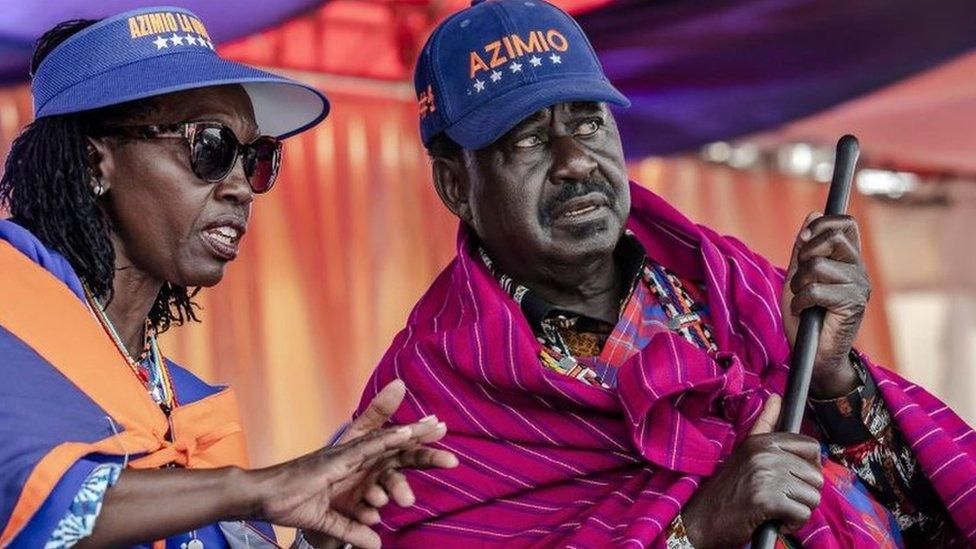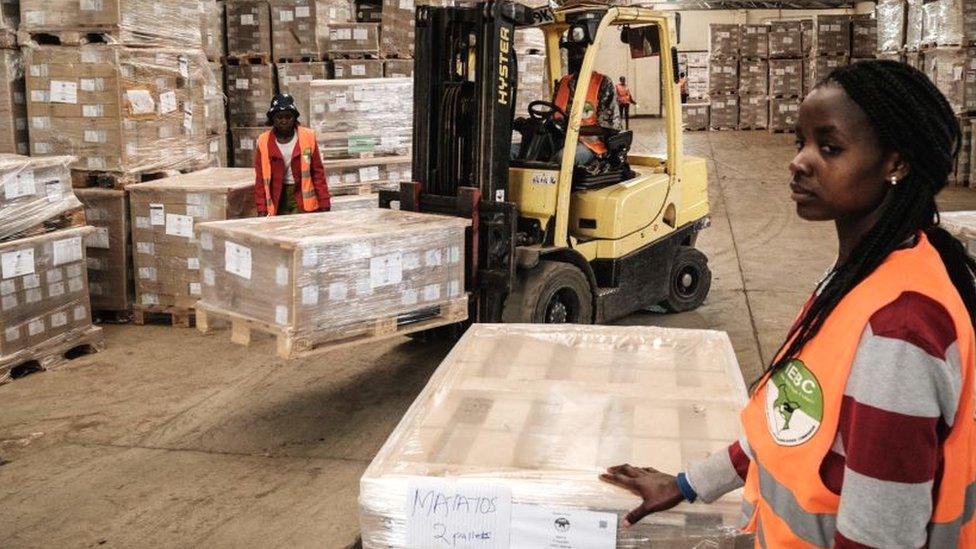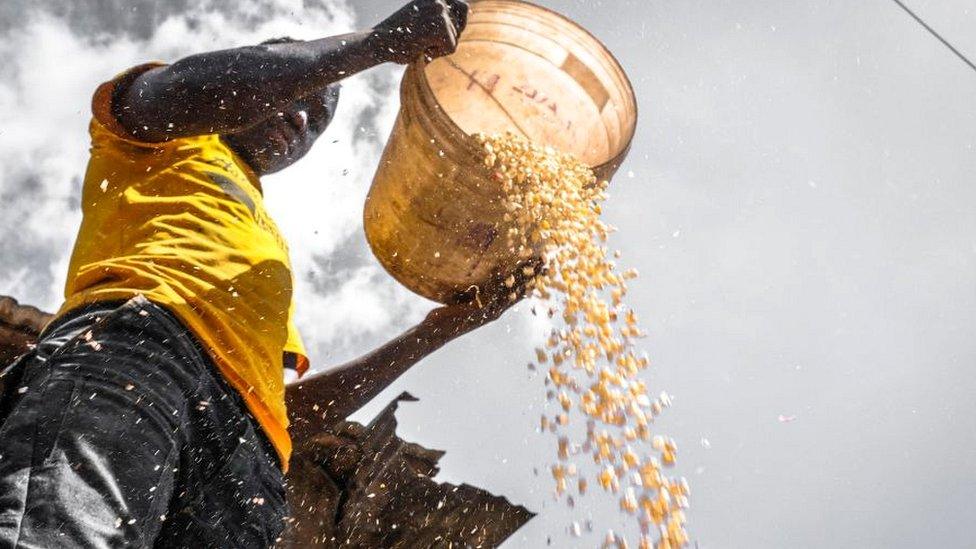Kenya election 2022: Raila Odinga corruption claims fact-checked
- Published

Mr Odinga with his running mate, Martha Karua, at a campaign event
Former prime minister Raila Odinga has been campaigning to take over as president of Kenya from Uhuru Kenyatta. He has made corruption a major focus of his rallies and speeches.
We've previously fact-checked the other leading candidate, William Ruto. Here we look at some of the claims made by Mr Odinga.
'Ruto has no running mate because [Rigathi Gachagua]...has been found guilty of....serious economic crimes in the country'
Mr Gachagua, who's campaigning to be deputy president alongside Mr Ruto, was ordered by a court on 28 July to return more than 200m Kenya shillings (Ksh) ($1.7m, £1.4m) because he'd failed to explain how he had acquired it.
Mr Gachagua says he was not given the chance to challenge the evidence against him and that he will appeal against the decision., external
Raila Odinga has called for him to withdraw from the election, saying that under the Kenyan constitution, "you cannot contest for presidency or be a presidential running mate if you have been indicted of a crime".
"He says he is going to appeal" added Mr Odinga, "but as things stand today he is convicted, guilty as charged."
However, the case involving Mr Gachagua was a civil one brought by a government agency responsible for recovering the proceeds of corruption. It was not a criminal case, and the distinction is important.
The constitution states that a person is disqualified from standing as president, deputy president or a member of parliament if they have been:
sentenced to at least six months in prison
found to have misused or abused a public office
But it also says you are not disqualified "unless all possibility of appeal or review of the relevant sentence or decision has been exhausted".
Constitutional lawyer Bobby Mkangi told us he believes this allows someone to continue to run for public office "while this [appeal] process is under way",
Mr Gachagua is facing a related criminal corruption case, but this isn't due to be heard in court until September. He denies the charges.
'He [William Ruto] contributes…the equivalent of 100 million shillings a month [to] harambees [fund raising events].... his salary is only two million shillings.'
Mr Odinga said this in an interview broadcast on 21 July, but we don't know how he arrived at the figure of Ksh100m ($840,000, £690,000) a month.
Mr Ruto has taken part in many fundraising events in recent years, but there is no legal requirement in Kenya for donors to declare their contributions. Once election campaigning is under way, no candidate is permitted to make further donations.
We've asked Mr Odinga's office how he arrived at the figure for how much Mr Ruto has contributed to these harambees and when he made them, but we have not had a reply.
As for the figure given for Mr Ruto's monthly salary, the official Kenya Gazette lists his pay as Ksh1.2m ($10,000, £8,300), external.
Mr Ruto is also known to have private sources of income from investments and business interests, but it's not known what he earns from these.

Ballot boxes being stored in a warehouse in Nairobi
'There was no officer found culpable in the office of the PM [under Mr Odinga]'
Mr Odinga made this claim in a recent BBC interview when asked about his time as prime minister from 2008 to 2013.
In 2010, a corruption scandal broke involving a subsidised maize programme.
A report by the global financial auditors PricewaterhouseCoopers (PwC) recommended an investigation into a number of government officials, and this included two working within the prime minister's office.

Kenya's anti-corruption commission carried out its own probe and concluded there was no evidence to bring charges against these two. It recommended the cases against them should be closed., external
The staff members were reinstated later that year., external
Subsequently, a fresh controversy arose over a World Bank-supported project to tackle youth unemployment.
The project faced criticism from MPs over the way it was run, amid allegations that money intended for unemployed youths was being siphoned off by officials in Mr Odinga's office.
At the time, the World Bank did raise concerns about the management of the project, and had asked the prime minister's office to clarify, external what had happened to more than Ksh33m (£229,000, $277,000)
But it did not publicly accuse any officials of wrongdoing.
Mr Odinga later told parliament "not a single penny [had] been lost in the programme".

YOUTH VIEW: The woman rallying election crowds - but won't vote
A WOMAN'S BATTLE: Taking on sexist bullies to stand
RAILA ODINGA: The eternal candidate hoping it will be fifth-time lucky
WILLIAM RUTO: William Ruto: The former chicken seller with presidential ambitions
READ MORE: Full coverage

